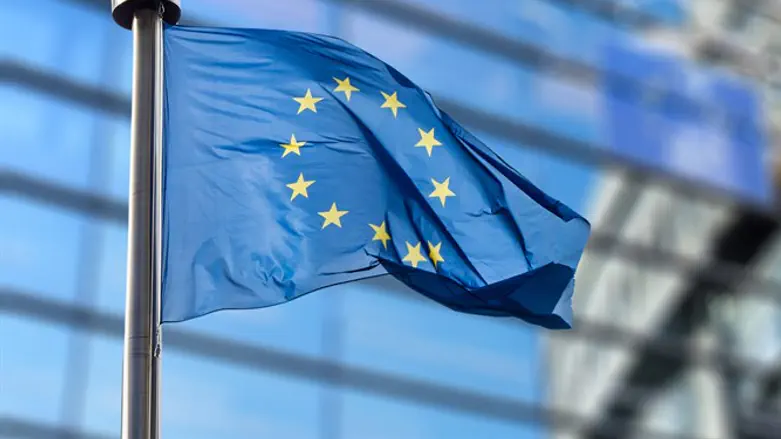
By dawn of 2021, the European Union opened a new page in its history. Following official withdrawal at the end of last year, the United Kingdom no longer applies European rules and has introduced new rules on travel, trade, immigration and security.
The move marks the tail end of measures launched in 2016 with Prime Minister Boris Johnson’s Brexit campaign, which ended 47 years of UK-EU organic connection. For the first time, the EU has lost one of its major members. His speech to the British people a few hours before Brexit is certainly indicative of Boris Johnson’s great ambition.
Speaking of “the dawn of a new era,” he reassured people by portraying what happened as a historic moment. “Brexit is not an end but a beginning” of a “a new chapter in our national story” Britain, he said, can make it a “stunning success.”
His words echo his vision: the EU is no longer in tune with British aspirations. The break-up was inevitable in order to build a better future for Britain, one can imagine. Of course, the British economy and many internal sectors will undergo major structural changes.
But the outcome of the breakaway still raises questions about the EU’s and the UK’s future, respectively. Despite the British Prime Minister’s optimism about wrapping up Brexit, its implications for the UK’s global status and role still hold a question mark for many observers and experts.
Among them are people who argue that the UK draws much of its power and global influence from its weight in the EU and ability to influence the decisions and policies of EU states over the past few decades.
Others believe that an EU-less Britain will be severely tested and will not live up to Bojo’s dream of building a “global Britain.” They see Brexit as a kind of strategic suicide or, to say the least, “self-harm” for the UK.
Either way, Britain’s exit from the EU is a significant milestone in the country’s history, the impact of which we cannot wrap our heads around right now. The idea is not so popular among Britons. Let’s not forget that in the referendum on leaving the EU, 52 per cent of voters voted in favour.
About 17.4 million out of 30 million voters said yes. That makes almost half of Britons unhappy about giving up all the benefits of EU membership, such as freedom of movement, living and working on the rest of the territory.
Then, internal divisions within Britain became more pronounced in the wake of the referendum results, followed by the resignation of former Prime Minister David Cameron and then Theresa May, who had led negotiations for carrying out Brexit without being able to unite British ranks.
If we add up other issues in the framework of the future Euro-British relations, we can make sense of the degree of uncertainty surrounding the situation in post-Brexit Britain. On the other side of the Channel, the Union has no interest in seeing the UK go it alone. Europe has lost a key member with its exit.
It is Europe’s second largest economy after Germany, and a nuclear military power. It is a fulcrum of EU status and security, in spite of its euroscepticism over security issues in favor of the Atlantic partnership. Moreover, the common European model of leadership, policies and decision-making will inevitably be impacted.
For some, the model is doubted about its ability to stand strong in the post-Brexit era. Proponents of this viewpoint suggest other exit scenarios, especially in light of recent years’ rising nationalism in many European countries. Moving on to the issue of EU common foreign policy and the implications of the new situation for it, this is an important question for a number of states and blocs, including the Gulf Cooperation Council (GCC) states. The EU is an active player in the Iranian nuclear crisis.
Brexit came at a very sensitive time, both in terms of the military tension in the last weeks of President Trump’s term of office between the Iranian mullahs’ regime and the US, and in terms of the official inauguration of US President-elect Joe Biden on January 20 marked by a controversy over his position on the nuclear deal.
Not much is likely to change in the position of the members of the European trio, namely Germany, Britain and France, and the signatories of the P5+1 deal of 2015. The nuclear agreement has proven to be the subject of consensus and coordination among these parties.
Numerous joint statements signed by three countries reflect a common view on current developments, starting with the opposition to President Trump’s mid-2018 decision to walk away from the nuclear deal and the rejection of US-proposed international sanctions on Tehran.
In sum, a new chapter is opening in relations between the UK and the EU. There will bound to be different outcomes for the two parties and their strategic interests, perhaps even for their relations with other international actors.
Whatever the winners and losers from Brexit, we can expect a new European era to take shape over time. Such a strategic shift may ramp up the pace of forming a new world order in the post-coronavirus world.
Dr. Salem AlKetbi is a UAE political analyst and former Federal National Council candidate